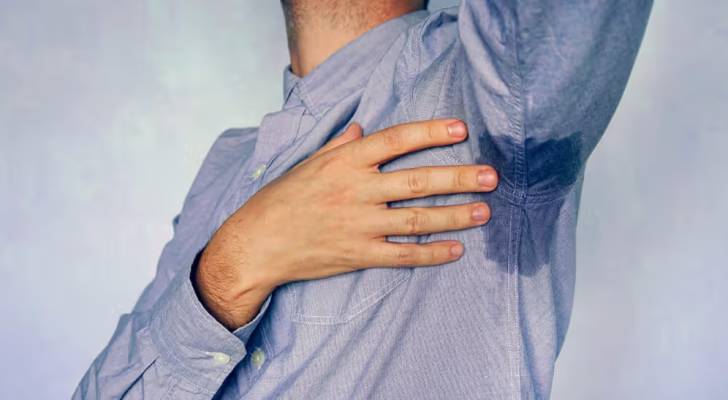Understanding, managing sweating during summertime (Photo: Getty Images)
Understanding, managing sweating during summertime
Sweating is a natural and healthy process during summer, helping to cool the body as temperatures rise.
However, it can also be a source of discomfort and embarrassment due to stains on clothing or unpleasant odors.
German dermatologist, Dr. Sabine Stangl, explained that the foul smell of sweat results from its breakdown by bacteria, and noted that armpit hair creates an ideal environment for these bacteria to thrive.
Consequently, Dr. Stangl recommended removing armpit hair to reduce bacterial growth and minimize sweat production and decomposition.
- Armpit hair removal -
Dr. Stangl advised against using wax for armpit hair removal due to the sensitivity of the skin in that area and recommended avoiding hair removal creams to preserve the skin’s natural barrier.
Shaving with an electric razor or opting for laser hair removal are gentler alternatives for sensitive skin.
- Skincare -
In addition to removing armpit hair, Dr. Stangl suggested regular skin care practices.
The skin should be washed immediately after sweating with soap to prevent bacterial growth.
After thoroughly drying the skin, using an antiperspirant is recommended.
For excessive sweating, antiperspirants can help, as they not only combat unpleasant odors but also reduce sweat production.
- Hyperhidrosis -
Dr. Uta Schlossberger stressed the importance of consulting a doctor if hyperhidrosis is suspected, characterized by excessive sweating in inappropriate conditions, such as in cold weather or during rest.
She explained that hyperhidrosis is categorized into two types: primary, linked to genetic factors, and secondary, which may arise from various conditions such as:
- Anemia
- Hyperthyroidism
- Low blood sugar
- Rheumatic diseases
- Tuberculosis
- Heart diseases
- Tumors
- Hormonal changes
- Psychological disorders
- Certain medications
In addition to addressing the underlying condition, hyperhidrosis can be managed with antiperspirants containing aluminum chloride, direct current treatments, Botox injections, or surgery.




